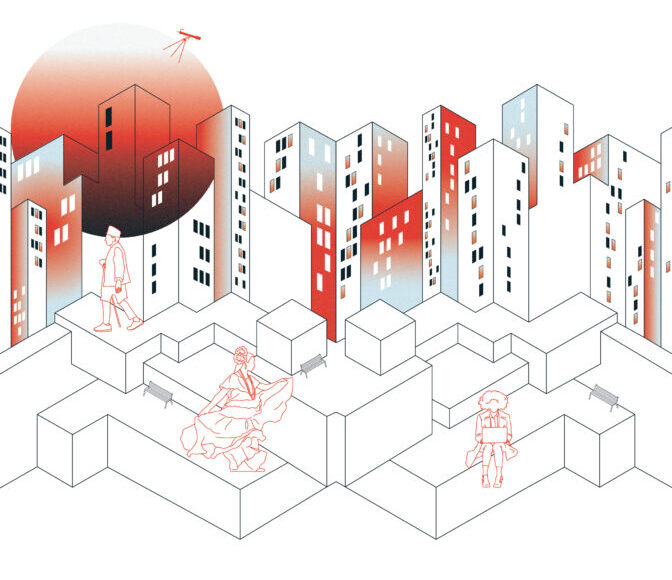In recent weeks, Studium Generale explored the theme of (re)claiming space – both literally and figuratively. What does it mean to claim space within the university, or in the city? Who decides who may stand where, speak, or remain silent?
Our first gathering focused on student protests on campus. Students entered into conversation with, among others, the director of the university library: does a demonstration belong within the institution of the university? If we see the university as more than a place of education and research – as a place of formation, of Bildung – then perhaps it should. Yet the tension remained palpable, though in a constructive way. One student said: “We oppose the course of the university itself. That can never be part of the institution.” Where does the space for dialogue end, and where does resistance begin?
These discussions on protest, participation, and institutional boundaries naturally led to questions about the deeper conditions for real change. This was the focus of our second event at Theater De Veste, together with the student association Argus from the Faculty of Architecture. The session carried the somewhat provocative title Woke Design, signaling a plea for inclusivity. There, we worked with a line of power: with each question about gender, education, or background, participants took a step forward or backward. A landscape of privilege emerged, in which men visibly stood at the front. It was confronting, but also enlightening. Beyond the exercise itself, the conversations made clear that genuine public space requires shared underlying values: without a commitment to inclusion and recognition, attempts at change remain superficial. Once again, something rare happened – real encounters between people who would normally never speak to each other: students and citizens of Delft, young and old.
(Re)claiming space thus turned out to be about more than occupying ground or raising one’s voice. It is about shaping a shared field of presence – one that requires attention, openness, and imagination. As Hannah Arendt observed, the public realm exists only “where people appear to one another.” But in our current and future-oriented work, we are stretching that insight further. How do we give space and voice to non-humans – animals, plants, rivers, or even AI? How do we account for the needs of future generations? Drawing on Donna Haraway, we begin to see the public as a multispecies space, where responsibility, care, and dialogue extend beyond the human. In this light, space is not a fixed given, but an act – a continual negotiation between self and other, even if the other is not human, and between the world as it is and the world as we collectively hope it might become.
Explore SG’s related events this quarter on the theme: (Re)Claiming Space

